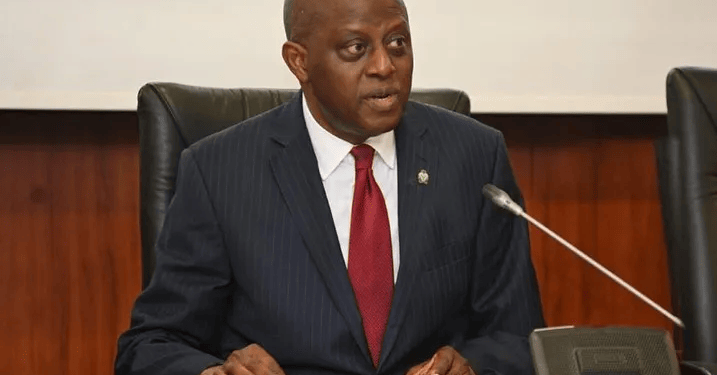The Central Bank of Nigeria (CBN) has announced the refund of approximately N7.05 billion and $714,569.03 to customers following its intervention in various financial disputes. This significant achievement was revealed in the CBN’s September special edition bulletin, which highlights the key accomplishments of Governor Olayemi Cardoso during his first year in office.
In the report, the CBN noted that under Cardoso’s leadership, the bank addressed a total of 19,988 customer complaints within just eight months. Of these, 15,306 complaints were successfully resolved, representing a commendable resolution rate of 76.58%. This proactive approach underscores the CBN’s commitment to protecting customer rights and ensuring fair treatment within the financial sector. Additionally, the bank has implemented strict sanctions against non-compliant financial service providers to enhance transparency and deter unethical practices.
Governor Cardoso was appointed by President Bola Tinubu in September 2023 for a five-year term, pending Senate confirmation. His leadership comes at a crucial time, especially following Nigeria’s greylisting by the Financial Action Task Force (FATF) earlier in the year. In response, the CBN has intensified its efforts in anti-money laundering, combating the financing of terrorism, and cybersecurity measures. From October 2023 to September 2024, the bank enhanced its supervision and conducted spot checks on Nigerian banks and their foreign subsidiaries. These initiatives aim to expedite Nigeria’s removal from the FATF Grey List, creating a more secure investment environment and improving the country’s global financial reputation.
Under Cardoso’s direction, the CBN has introduced new minimum capital requirements for banks, setting the benchmark at N500 billion for commercial banks with international authorization and N200 billion for those with national authorization. This move is part of broader reforms aimed at strengthening the banking sector and ensuring stability. Additionally, the CBN has made significant strides in the financial landscape by approving the license for one bank to operate as a non-operating financial holding company, while another transitioned from a merchant bank to a national commercial bank. Furthermore, two banks received approvals for regional commercial licenses, and one was authorized for regional non-interest banking. In the microfinance sector, the bank has licensed 16 new banks and reinstated 53 previously revoked microfinance bank licenses. The approval of five new finance companies further reflects the CBN’s commitment to fostering growth and competition in the financial industry.
Despite these accomplishments, the CBN faces ongoing challenges in curbing inflation, which has been exacerbated by an excessive money supply. Since Cardoso’s inaugural Monetary Policy Committee meeting in February 2024, the CBN has taken an aggressive stance by consecutively raising the monetary policy rate. These efforts resulted in a notable deceleration of inflation for the first time in 19 months during July and August 2024. However, recent data from the National Bureau of Statistics revealed that inflation has risen again to 32.70%, up from 32.15% in August. This fluctuation underscores the complexities of the current economic environment and the need for continued vigilance and adaptive strategies to achieve sustainable economic stability.
In conclusion, the CBN’s proactive measures under Governor Cardoso’s leadership demonstrate a strong commitment to enhancing customer rights, improving financial sector transparency, and addressing pressing economic challenges. As Nigeria navigates these turbulent times, the CBN’s efforts to restore confidence in the financial system will be crucial for fostering growth and attracting investment, ultimately benefiting micro and small enterprises (MSEs) across the nation and the broader African economy.










